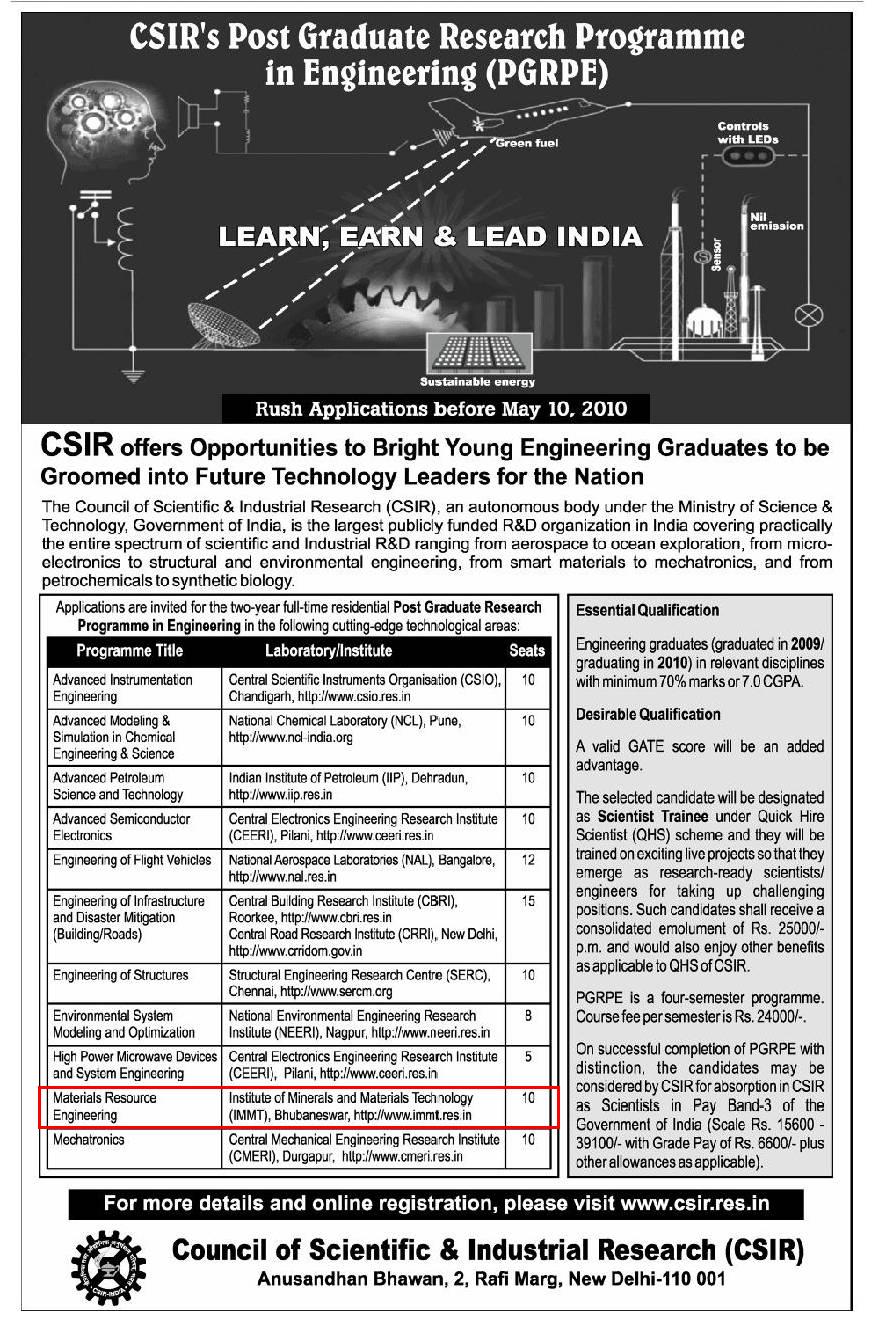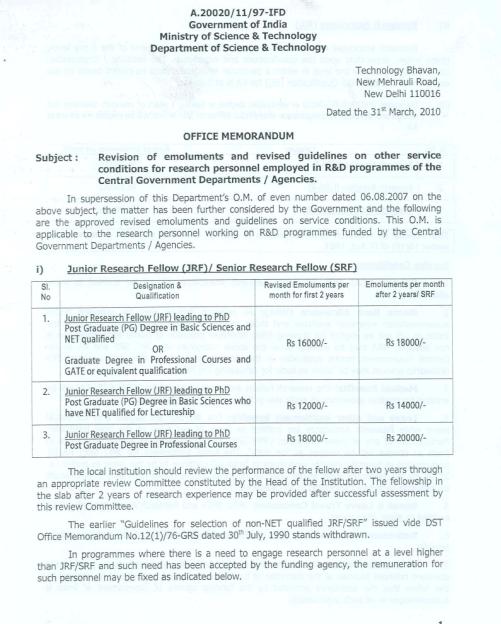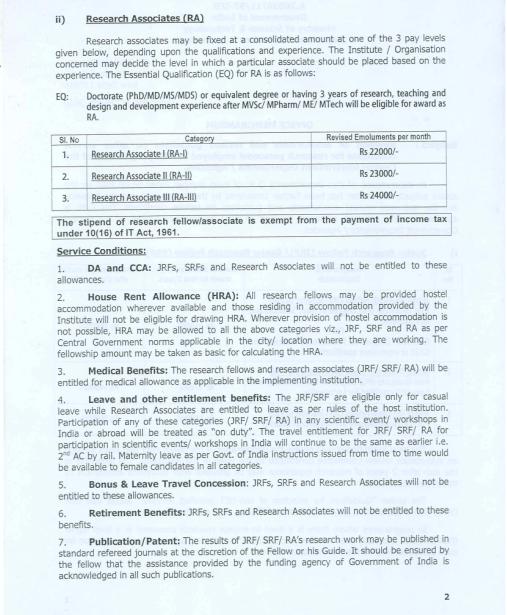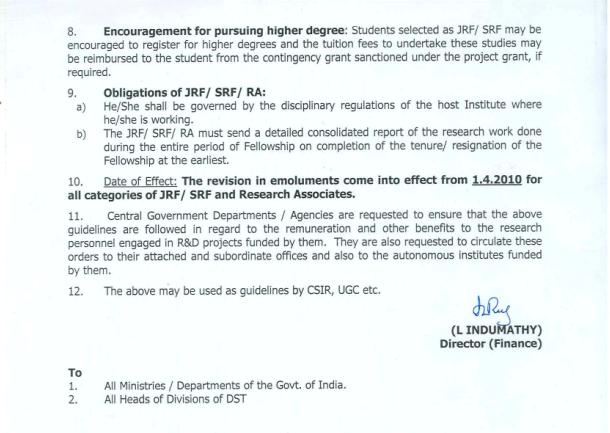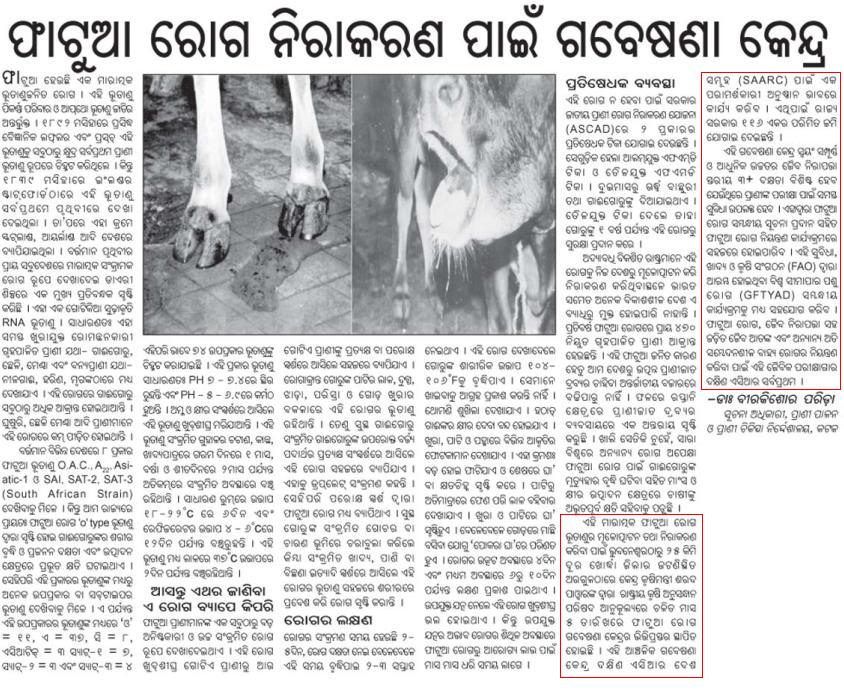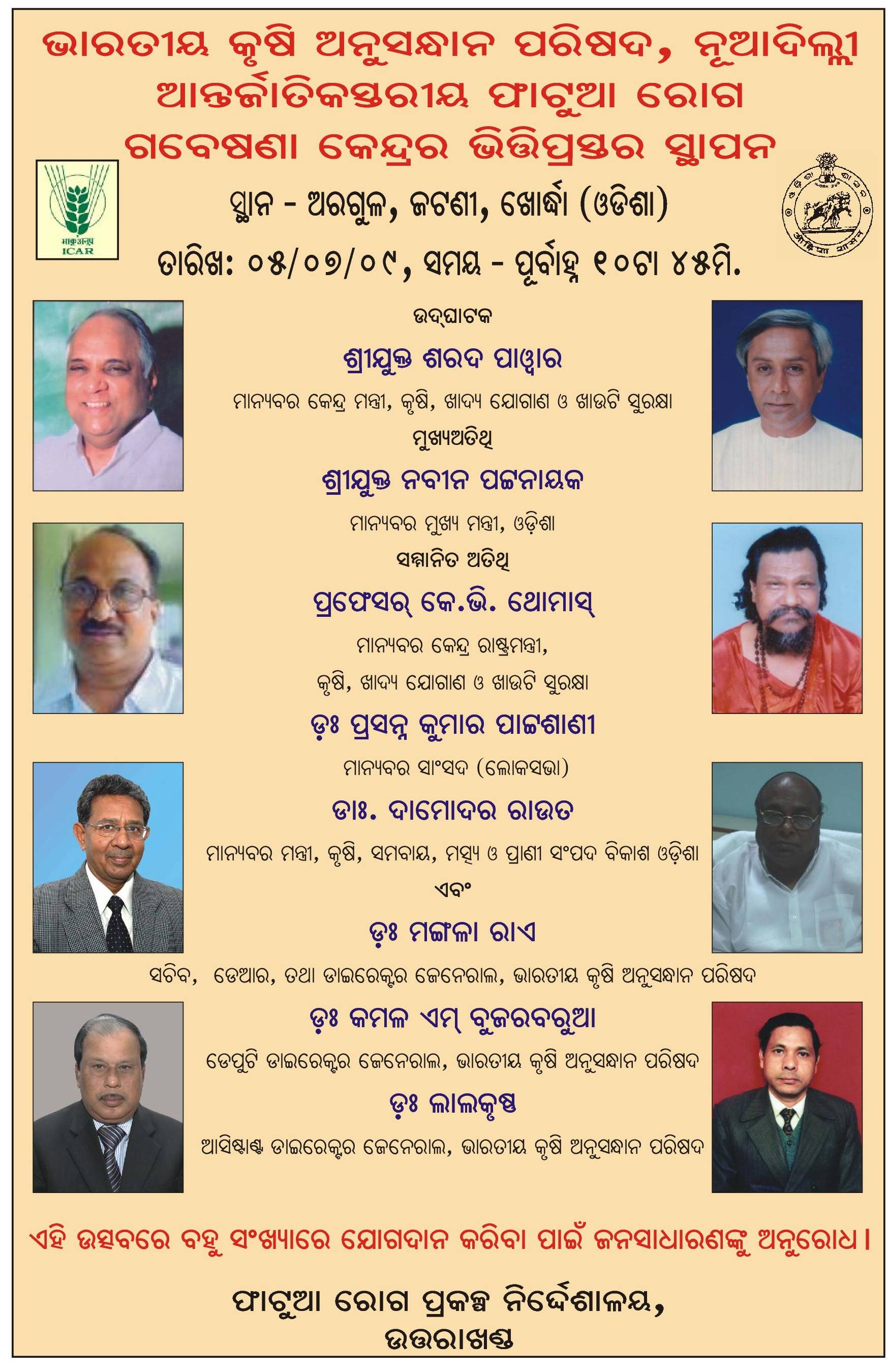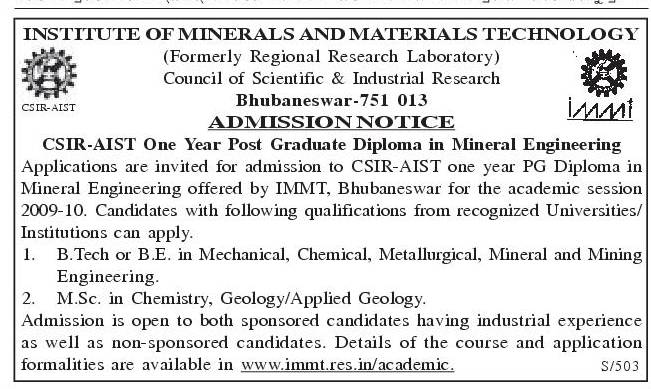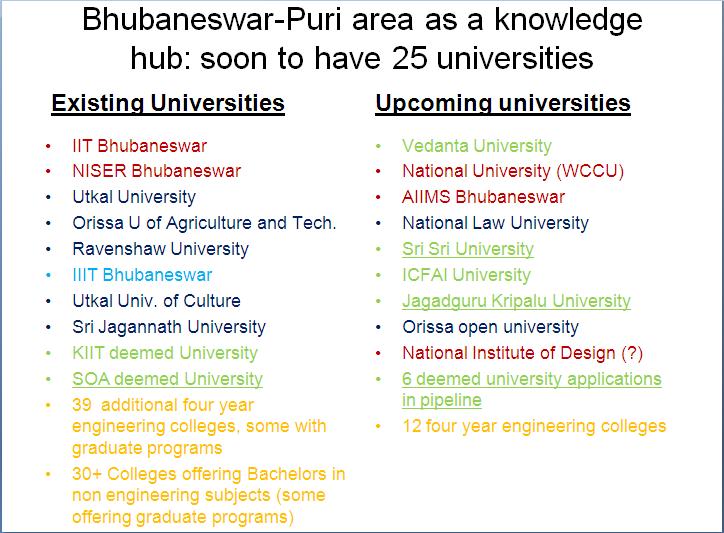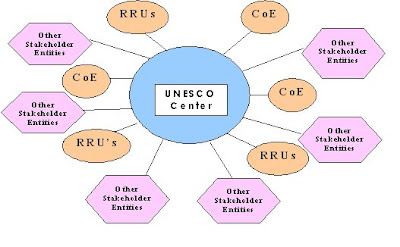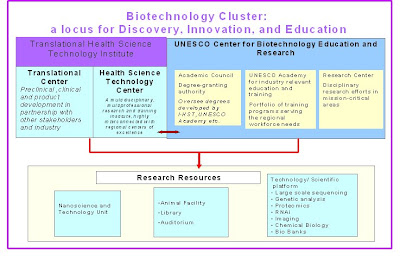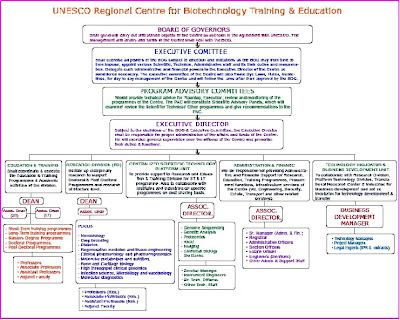|
Krishi Vigyan Kendra, Bhanjanagar
Krishi Vigyan Kendra, Semiliguda
Krishi Vigyan Kendra, G. Udayagiri
Krishi Vigyan Kendra, Keonjhar, Orissa
Krishi Vigyan Kendra, Balasore, Pin -756023, Established in 1983.
Krishi Vigyan Kendra, Sambalpur, Pin – 768102, Established in 1985. Larambha, Bargarh (Dist), Orissa
Krishi Vigyan Kendra, Kalahandi, Pin – 766001, Established in 1992.
Krishi Vigyan Kendra, Kendrapada, Pin -754211 , Established in 1994. Jajanga, Kapaleswar, Kendrapara (Dist), Orissa, FAX: (06727)-74962
Krishi Vigyan Kendra, Bhubaneshwar, Pin – 751002, Established in 1976.
Krishi Vigyan Kendra, Cuttack, Pin – 753006, Established in 1992.
Krishi Vigyan Kendra, Dhenkanal, Pin – 759013, Established in 1994.
Krishi Vigyan Kendra, Angul, Pin – 759122, Established in 1995.
Krishi Vigyan Kendra, P.O.Box no:10, Sunabeda, Koraput (Dist), Orissa, FAX: (06853)-20431
Agricultural Technology Information Centres ( ATICs)
Agricultural Technology Information Centre (ATIC), Central Institute of Freshwater Aquaculture (CIFA), Dhauli, Kaushalyaganga P.O., BHUBANESWAR – 751 002, ORISSA
Agricultural Institutes & Regional Stations
Orissa University of Agriculture & Technology (OUAT), Bhubaneswar,Orissa, PIN 751003,
e mail: root@uat.ori.nic.in, vc@ouat.ten.nic.in, Phone : (0674)-402769/818/918, FAX : 0674-407780
High Altitude Research Station of Orissa University of Agriculture & Technology,
Pottangi-764039, Koraput (Dist), Orissa, Phone: (06853)-42565
Jute Research Station of Orissa University of Agriculture & Technology,
Kaleswar, Kendrapara (Dist), Orissa, Phone: (06727)-22266
Regional Research & Technology Transfer Station of Orissa University of Agriculture & Technology, Keonjhar-758002, Keonjhar (Dist), Orissa, Phone: (06766)-55567
Regional Research & Technology Transfer Station of Orissa University of Agriculture & Technology, Ranital-756111, Bhandrak (Dist), Orissa, Phone: (06784)-65952
Regional Research Station, P.O. Agricultural College, Chiplima -768025,
Dist. Sambalpur, Orissa, Phone : 83507
Regional Research & Technology Transfer Station of Orissa University of Agriculture & Technology, P.O.Box:10, Semiliguda, Sunabeda-763002, Koraput (Dist), Orissa, Phone: (06853)-20348
Regional Research & Technology Transfer Station of Orissa University of Agriculture & Technology,Central Farm, Bhubaneswar-751003, Khurda (Dist), Orissa, Phone: (0674)-470415
Regional Research and TOT (Sub-station) of Orissa University of Agriculture & Technology,
Kalimela-764047, Malkangiri (Dist), Orissa
Regional Research and TOT (Sub-station) of Orissa University of Agriculture & Technology,
Kirei-770073, Sundergarh (Dist), Orissa, Phone:(06622)-73245
Regional Research Station of Orissa University of Agriculture & Technology,
Krupasindhupur, Berhampur-761001, Ganjam (Dist), Orissa, Phone:(0680)-208935
Zonal Agricultural Research Station ( ZARS), Bhadrak, Orissa
Zonal Agricultural Research Station ( ZARS), Navrangpur, Orissa
Central Institute of Freshwater Aquaculture, Kausalyaganga Post-751002, Bhubaneswar, Orissa
e mail : cifa@tn.nic.in Phone : (0674)-465430/21 Fax : (0674)-465407
Central Rice Research Institute, Bidyadharpur-753006, Cuttack, Orissa, e mail : crri@crri.ori.nic.in Phone : (0671)-642445/450 Fax : (0671)-641744
Central Soil & Water Conservation Research &Training Institute Research Centre
P.B No:12,Sunabeda-763002, Koraput (Dist),Orissa, e mail : cswcrti@dte.vsnl.net.in , Phone : (06853)-22418, (06852)-40738, Fax : (06853)-20592
National Research Centre on Water Technology Centre for Eastern Region, Chandrasekharpur, P.O: SE Railway Project Complex, Bhubaneswar-751023, Orissa, e mail : wtcer@stpbh.soft.net/www.wtcer.stpbh.soft.net , Phone : (0674)-300060, Fax : (0674)-301651
National Research Centre for Women in Agriculture
Plot No- 1199, Jagamara, P.O Khandagiri, Bhubaneswar-751030, Bhubaneswar (Dist) Orissa, e mail : nrcwa@nrcwa.ori.nic.in, Phone : (0674)-471013, Fax : (0674)-471448
Central Avian Research Institute Regional Centre
Baramunda housing board, Bhubaneswar -751003, Khurda (Dist), Orissa, Phone : (0674)-563934, Fax : (0674)-553195
Puri Research Centre of Central Institute of Brackishwater Aquaculture
15 B.S.Nagar, Puri-752002, Orissa, Phone : (06752)-23381
Burla Research Centre of Central Institute of Fisheries Technology
Burla-768017, Sambalpur (Dist), Orissa, Phone : (0663)-430419
Sisal Research Station of Central Research Institute for Jute &Allied Fibres
Bamra-768221, Sambalpur (Dist), Orissa, Phone : (0662)-60086
Central Horticultural Experiment Station
Aiginia, Bhubaneswar-751019, Khurda (Dist), Orissa, Phone : (0674)-471867, Fax : (0674)-471867
National Bureau of Plant Genetic Resources Regional Station
C.R.R.I. Campus-753006, Cuttack, Orissa, e mail : nbpgrctc@ori.nic.in,
Phone : (0671)-642727, Fax : (0671)-642727
|
